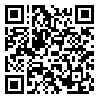Volume 12, Issue 1 (spring 2025)
J Prevent Med 2025, 12(1): 47-62 |
Back to browse issues page
Ethics code: IR.MALAYERU.REC.1400.018
Download citation:
BibTeX | RIS | EndNote | Medlars | ProCite | Reference Manager | RefWorks
Send citation to:



BibTeX | RIS | EndNote | Medlars | ProCite | Reference Manager | RefWorks
Send citation to:
Kazemi S, Ghasemipour Y. The predictive role of basic psychological needs in self-care behaviors of adolescents: the application of self-determination theory (SDT). J Prevent Med 2025; 12 (1) :47-62
URL: http://jpm.hums.ac.ir/article-1-825-en.html
URL: http://jpm.hums.ac.ir/article-1-825-en.html
1- MA in General psychology, Dept. of Psychology, faculty of Humanities, Malayer University, Malayer, Hamedan, Iran
2- Assistant Prof., Dept. of Psychology, faculty of Humanities, Malayer University, Malayer, Hamedan, Iran
2- Assistant Prof., Dept. of Psychology, faculty of Humanities, Malayer University, Malayer, Hamedan, Iran
Abstract: (454 Views)
Introduction: Adolescents experience significant biological, psychological, and social changes that may challenge their self-care behaviors. This study aimed to predict adolescents’ self-care behaviors based on the satisfaction of their basic psychological needs.
Methods: This descriptive-correlational study included 1,328 secondary high school students in Mohammadiyeh, Qazvin, during the 2021–2022 academic year. Using convenience sampling, 295 students were selected as participants. Data were collected via the Adolescents’ Self-Care Scale and the Need Satisfaction Scale and analyzed using Pearson correlation and multiple regression analyses in SPSS-26.
Results: Significant positive correlations (p < 0.001) were found between self-care behaviors and the satisfaction of basic psychological needs in adolescents. Basic psychological needs explained 42% of the variance in self-care behaviors (R² = 0.42). Autonomy (β = 0.19), competence (β = 0.38), and relatedness (β = 0.17) significantly predicted self-care behaviors (p < 0.001), with competence being the strongest predictor.
Conclusion: The satisfaction of basic psychological needs, particularly competence, significantly predicts adolescents’ self-care behaviors. Environments that foster these needs can promote self-care practices. Parents and educators are encouraged to implement psychological and educational strategies to enhance self-care within family and school settings.
Methods: This descriptive-correlational study included 1,328 secondary high school students in Mohammadiyeh, Qazvin, during the 2021–2022 academic year. Using convenience sampling, 295 students were selected as participants. Data were collected via the Adolescents’ Self-Care Scale and the Need Satisfaction Scale and analyzed using Pearson correlation and multiple regression analyses in SPSS-26.
Results: Significant positive correlations (p < 0.001) were found between self-care behaviors and the satisfaction of basic psychological needs in adolescents. Basic psychological needs explained 42% of the variance in self-care behaviors (R² = 0.42). Autonomy (β = 0.19), competence (β = 0.38), and relatedness (β = 0.17) significantly predicted self-care behaviors (p < 0.001), with competence being the strongest predictor.
Conclusion: The satisfaction of basic psychological needs, particularly competence, significantly predicts adolescents’ self-care behaviors. Environments that foster these needs can promote self-care practices. Parents and educators are encouraged to implement psychological and educational strategies to enhance self-care within family and school settings.
Type of Study: Orginal |
Subject:
Psychology
Received: 2025/03/17 | Accepted: 2025/05/20 | Published: 2025/10/5
Received: 2025/03/17 | Accepted: 2025/05/20 | Published: 2025/10/5
Send email to the article author
| Rights and permissions | |
 |
This work is licensed under a Creative Commons Attribution-NonCommercial 4.0 International License. |







 hums.ac.ir
hums.ac.ir